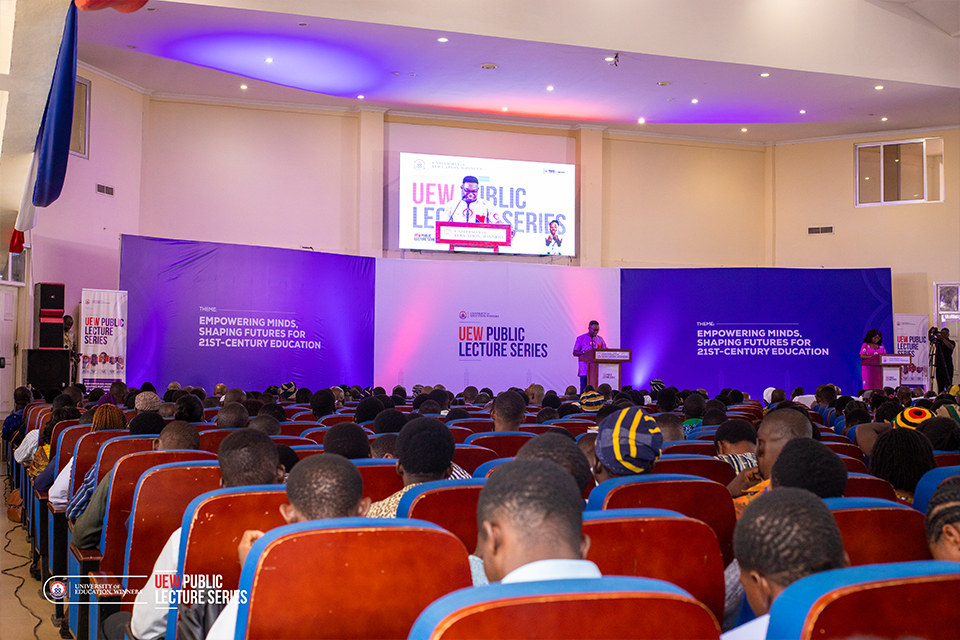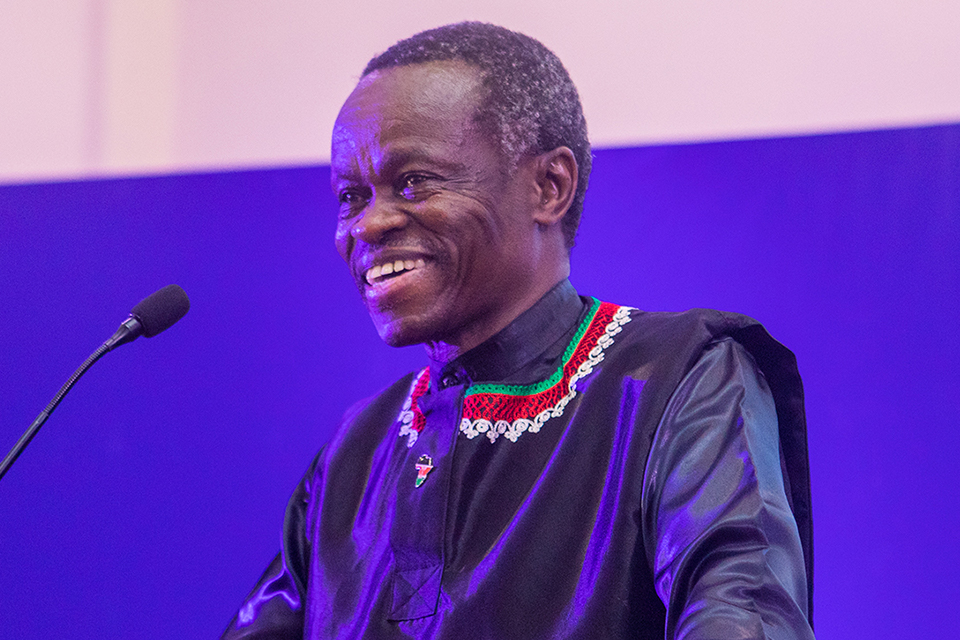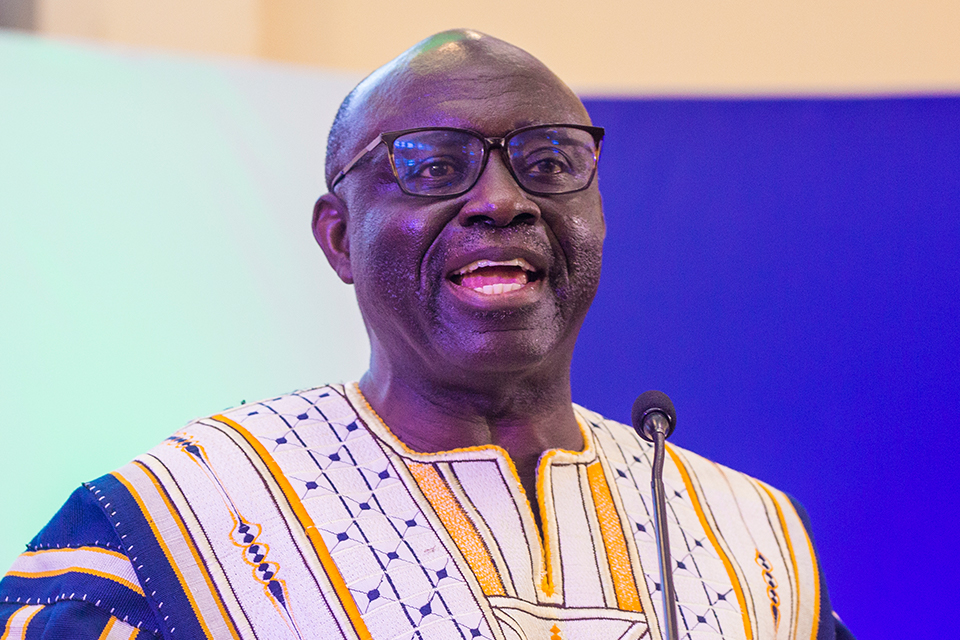UEW Public Lecture: Expert Urges Shift to Mother-Tongue Instruction in Early Childhood Education
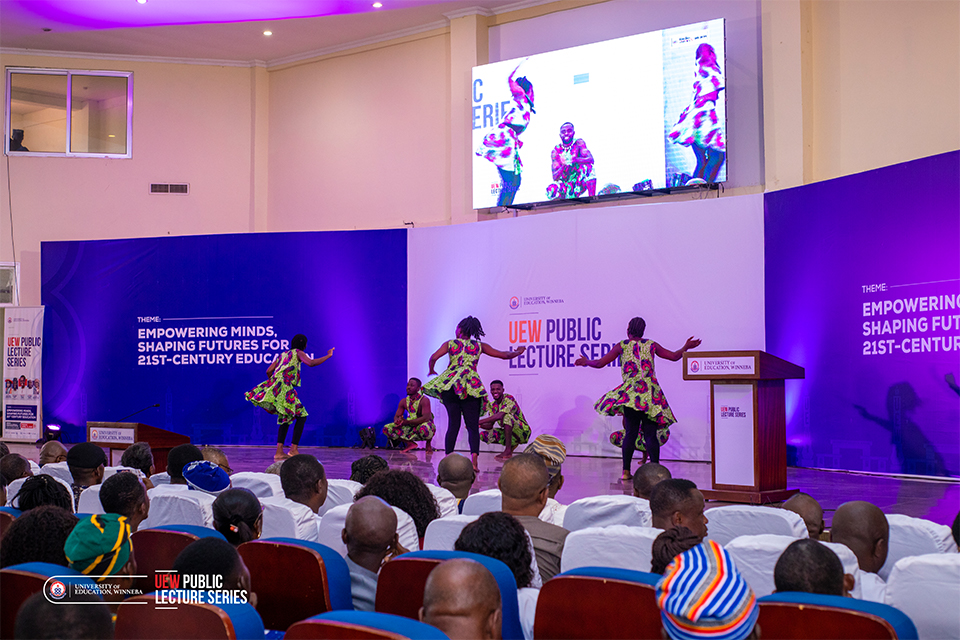
Prof. Agyemang Badu Akosa, Executive Director of Healthy Ghana, has advocated for a fundamental shift in Ghana's education system, urging the adoption of mother-tongue instruction in early childhood education to enhance cognitive growth and self-worth.
Speaking to a packed auditorium of academics, students, administrators and dignitaries at the University of Education, Winneba's latest Public Lecture Series, Prof. Akosa decried what he described as a systemic disconnection from cultural identity, beginning with the sidelining of local languages in early childhood education. “Research is clear; children should be educated in their mother tongues up to age eight. Yet we continue to impose English at the earliest levels, stunting cognitive growth and self-worth,” he stressed.
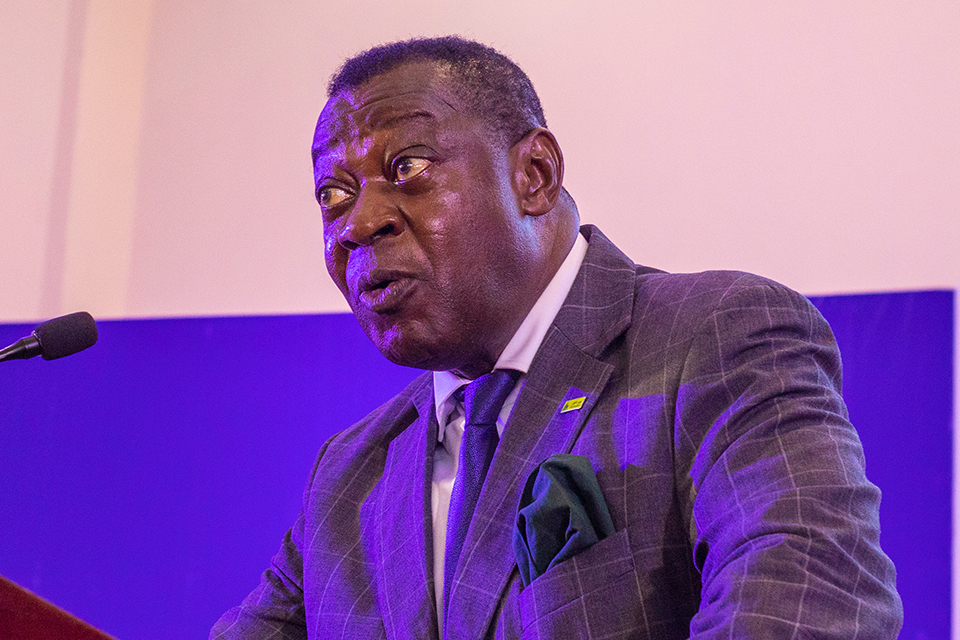
Prof. Akosa challenged the university to take the lead in integrating local languages into foundational education, boldly suggesting that UEW should champion a national policy for mother-tongue instruction in early grade education.
In an impassioned reflection on cultural erosion, Prof. Akosa lamented the near disappearance of intergenerational learning and indigenous knowledge. “If you have never sat at the feet of your grandmother, you have missed half of what it means to be Ghanaian,” he said, adding that knowledge from grandparents and folklore instills dignity, confidence, and a rooted sense of identity crucial for national development.
Highlighting what he termed “one-phase brain wiring,” he critiqued the current education system for producing citizens with limited capacity for critical and lateral thinking due to early academic exposure that disregards cultural context. “We need three-phase wiring. We need citizens who think broadly, culturally and confidently,” he emphasised.
Prof. Akosa also turned his focus to national governance, arguing that Ghana’s multiparty democracy has benefited only the political elite while the intellectual and working classes remain marginalised. “Multi-party democracy, as it stands, has done nothing for the average Ghanaian,” he declared, citing the underutilisation of Ghana’s rich herbal and indigenous resources as a glaring example of wasted potential.
The speech was delivered in the presence of Dr. Clement Apaak, the Deputy Minister of Education. Professor Akosa called upon him to ensure that the outcomes of the lecture are utilised to inform the ongoing national review of the education system.
He concluded with a resounding message: “UEW must be the university that catalyses educational reform in Ghana. Let us start by changing how we teach, how we value our knowledge, and how we prepare the next generation—not just to pass exams, but to transform society.”
As Ghana reconsiders its educational future, the UEW Public Lecture Series continues to be a vital platform for intellectual awakening, policy influence, and national dialogue.









